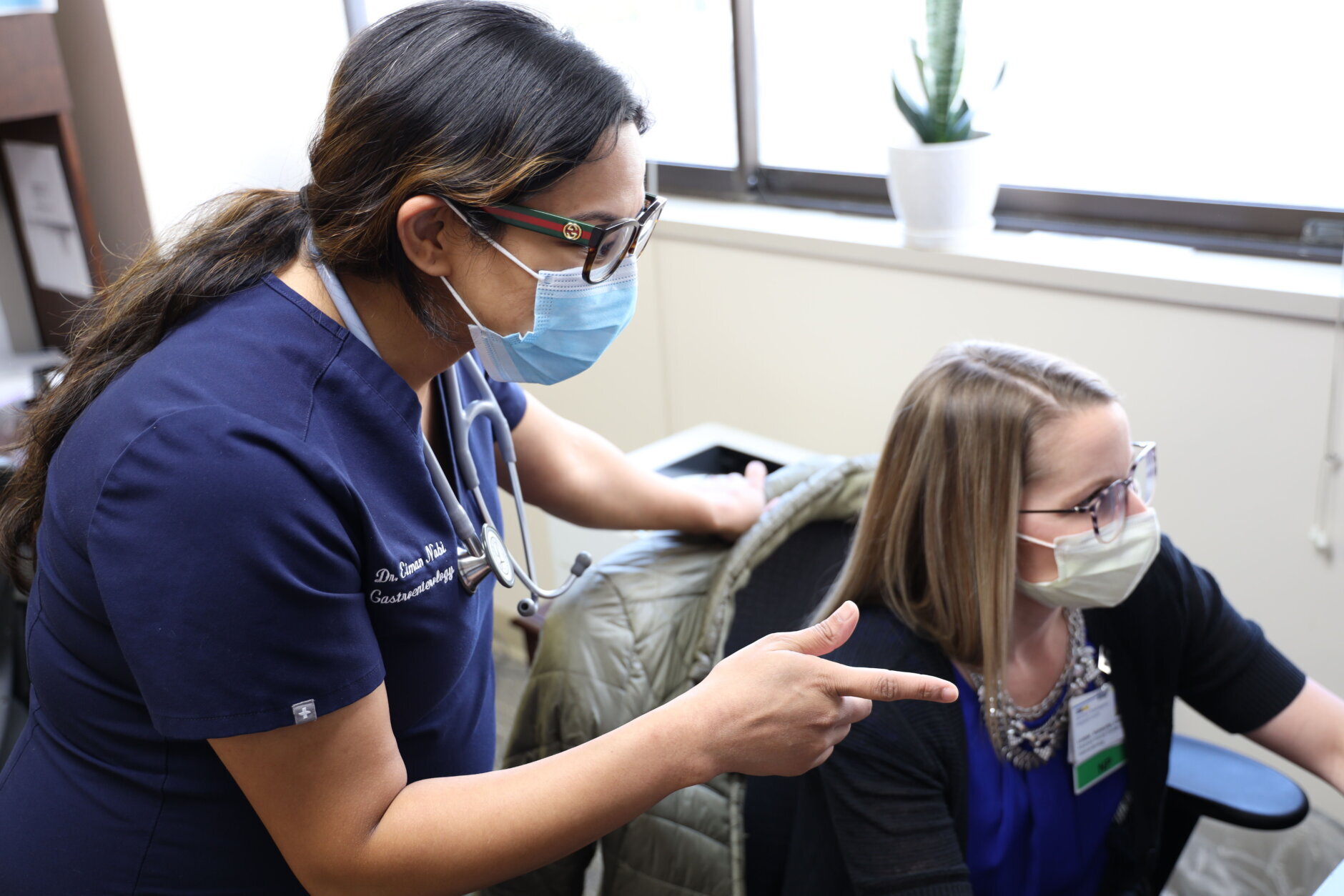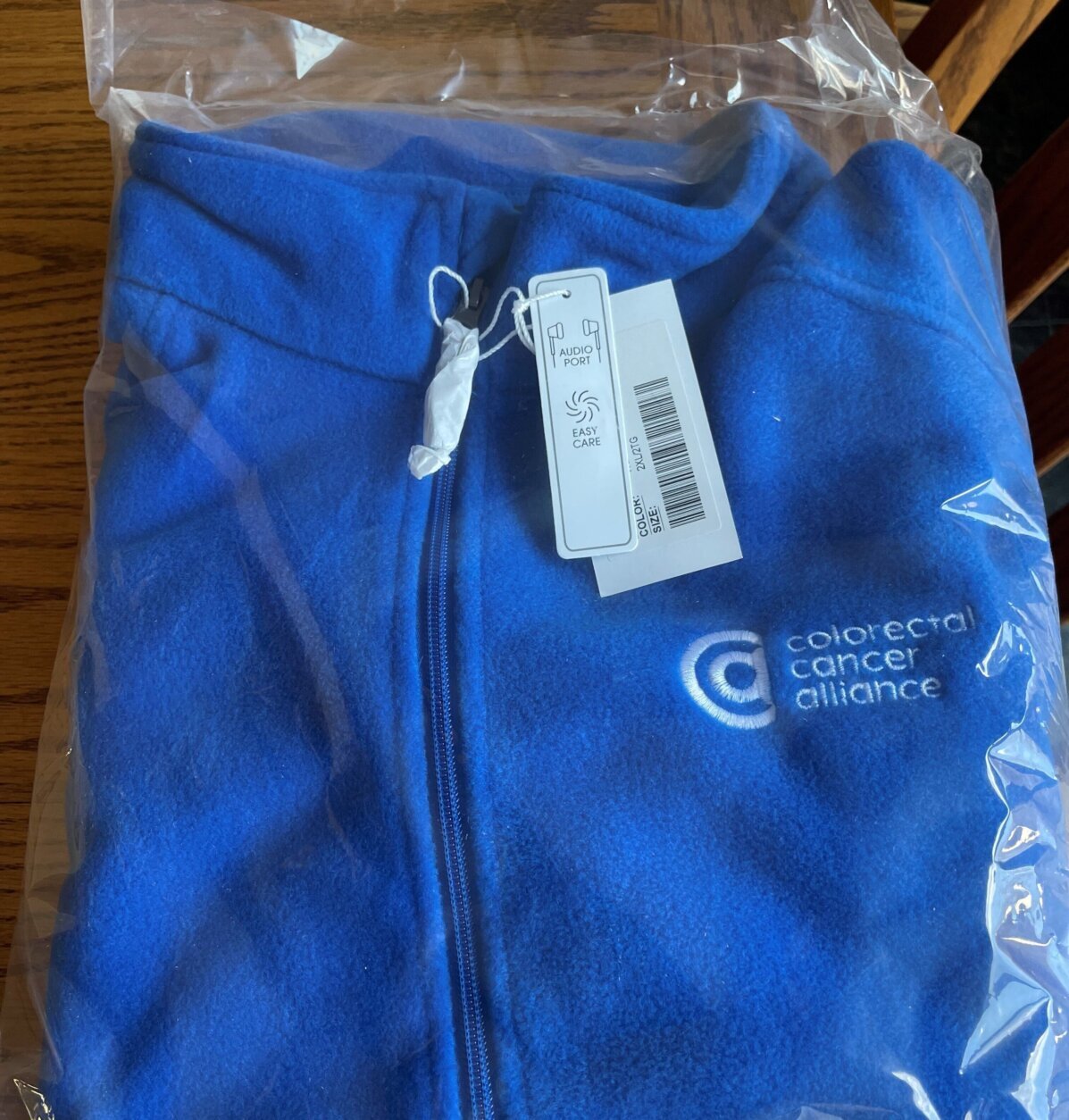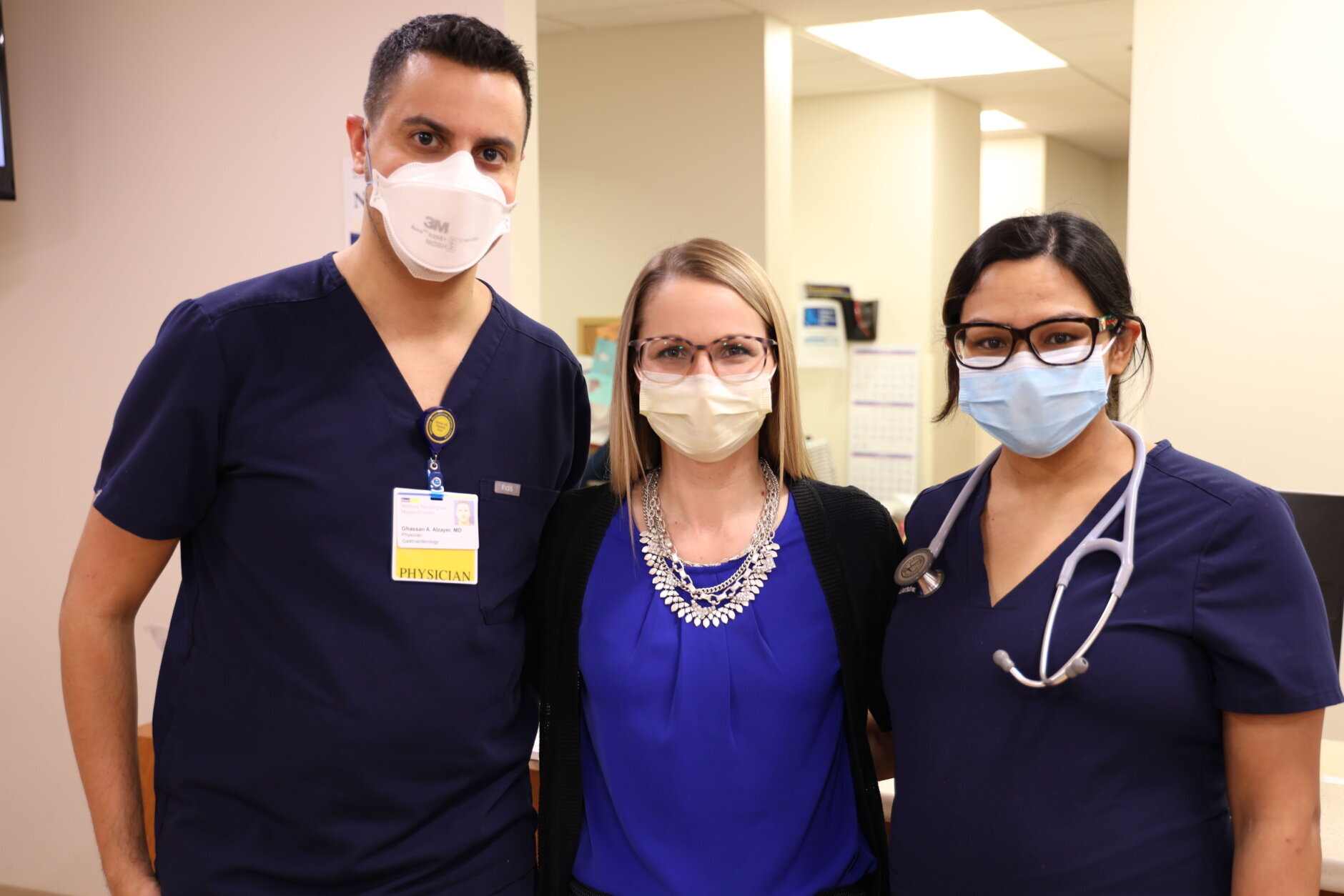Colorectal cancer is the second leading cause of cancer deaths in men and women combined. Fortunately, it’s easy to treat — the trick is needing an early diagnosis.

Courtesy MedStar Washington Hospital Center

Courtesy Kelli Jakaitis

Courtesy MedStar Washington Hospital Center
Colorectal cancer is the second-leading cause of cancer deaths in the U.S. in men and women combined. Fortunately, it’s easy to treat and the key is an early diagnosis.
“Colonoscopy is a very safe procedure, that’s the gold standard test we have; it’s a one-step procedure. We can diagnose and remove polyps at the same time,” said Dr. Eiman Nabi, a gastroenterologist at MedStar Georgetown University Hospital and MedStar Washington Hospital Center.
“You can always start with a stool-based test, such as the FIT test or colo guard. These detect blood in your stool, like stool DNA, Nabi said. “If positive, you could end up needing a colonoscopy, but it’s something that can happen very easily through your primary care.”
Going the colonoscopy route initially though and the “prep” experience no longer involves drinking large amounts of awful-tasting, system-flushing-fluids to allow doctors to get a good look at your insides.
“We have new preps that are low-volume, more appetizing,” Nabi said. “As long as patients follow the correct recommendations, it’s not that complicated. It’s actually a pretty easy process.”
Getting a colonoscopy might require taking a single day off work if you don’t mind sticking to a clear liquid diet during the workday before the procedure.
“The prep is usually given in a split dosing. So, we usually have you take half the prep the evening before the procedure, and the second half of the prep at least six hours before your procedure time,” Nabi explained.
The day of the procedure, you’re typically at the doctor’s office for about three hours. The colonoscopy takes about 15 to 30 minutes when you’re completely asleep. You wake up back to normal.
“We do ask you to take it easy that day, and you cannot drive. So you do need someone to come pick you up,” Nabi said.
“We have made many advancements in the procedure, anesthesia, the prep. And so it’s literally just one day’s commitment that can save you many, many years,” she said.
If someone’s colonoscopy is clear, and they have no family history, the next screening is recommended after 10 years.
The American Cancer Society recommends an initial screening at 45 years old for people at average risk.
If even one family member is diagnosed with colon cancer, screening is recommended at age 40 or 10 years prior to their age of diagnosis, whichever comes sooner.
There is a trend of new diagnoses of colorectal cancer in younger people.
Doctors don’t know why, but hypothesize that dietary and lifestyle factors may be responsible, such as access body weight, high consumption of processed meat and alcohol, low levels of physical activity, low fiber consumption and cigarette smoking.
“The best thing you can do is have a healthy diet and lifestyle, avoid processed food, avoid alcohol, illicit drugs, perform more physical activity, stay active with aerobic exercise, eat more fiber,” Nabi said. “There’s no harm in taking fiber supplements every day.”
2022 estimates suggest that about 151,000 people will be diagnosed with colon cancer this year, and of those people, almost 52,000 will die from it.
March is National Colorectal Cancer Awareness Month.
March 4 is Dress in Blue Day to bring awareness and honor all affected by colorectal cancer.